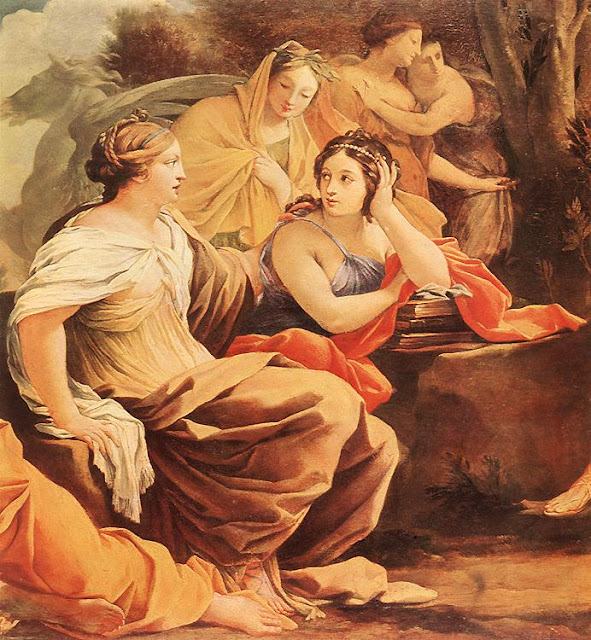THE NINE MUSES were daughters of Zeus and the Titaness Mnemosyne. Their mother's memory was as long as her beautiful hair, for she was the goddess of memory and knew all that had happened since the beginning of time. She gathered her nine daughters around her and told them wondrous tales. She told them about the creation of earth and the fall of the Titans, about the glorious Olympians and their rise to power, about Prometheus, who stole the heavenly fire, about the sun and the stars, and most of all about the greatness and wisdom of their father, Zeus. The nine Muses listened to her with wide, sparkling eyes and turned her stories into poems and songs so they would never be forgotten.
Apollo, the god of music, trained them and taught them to sing harmoniously together.
He led the choir of Muses through the halls of Olympus and over the slopes of Mount Parnassus, and their music rang so pure and fine that even the songbirds fell silent to listen.
Apollo, the god of music, trained them and taught them to sing harmoniously together.
He led the choir of Muses through the halls of Olympus and over the slopes of Mount Parnassus, and their music rang so pure and fine that even the songbirds fell silent to listen.
Each of the Muses had her own special art. Calliope, the Muse of heroic poetry, was the first among them. She had a mortal son named Orpheus, and he sang almost as beautifully as the Muses themselves. When he was grown, he left his mother and his eight loving aunts and went to live in his father's kingdom of Thrace to bring the joy of music to earth. His voice rang so pure and true that the fiercest warriors put down their swords and savage beasts lay spellbound at his feet. Trees pulled up their roots and moved closer to listen, and even hard rocks rolled up to him.


Comments
Post a Comment